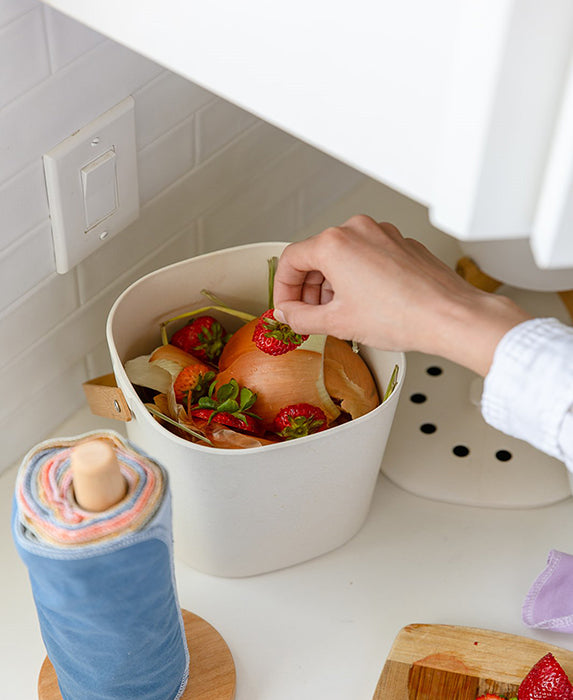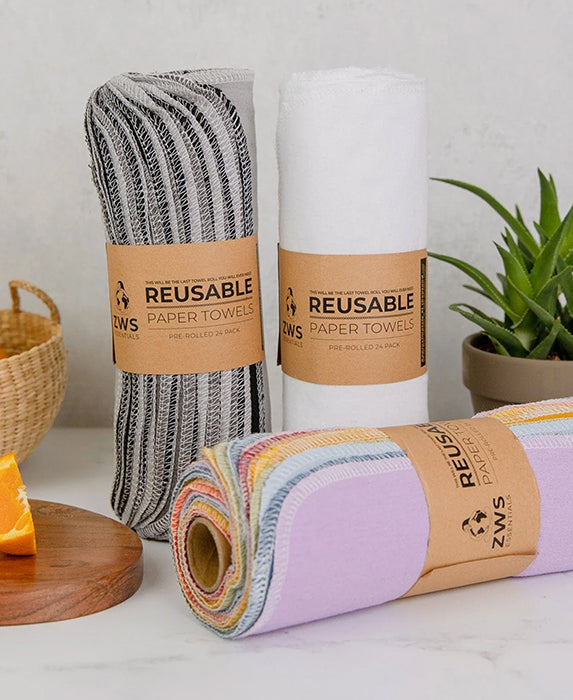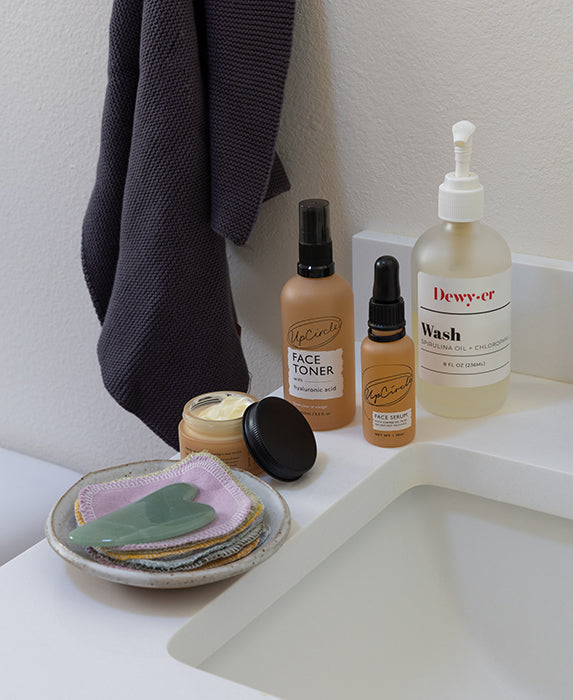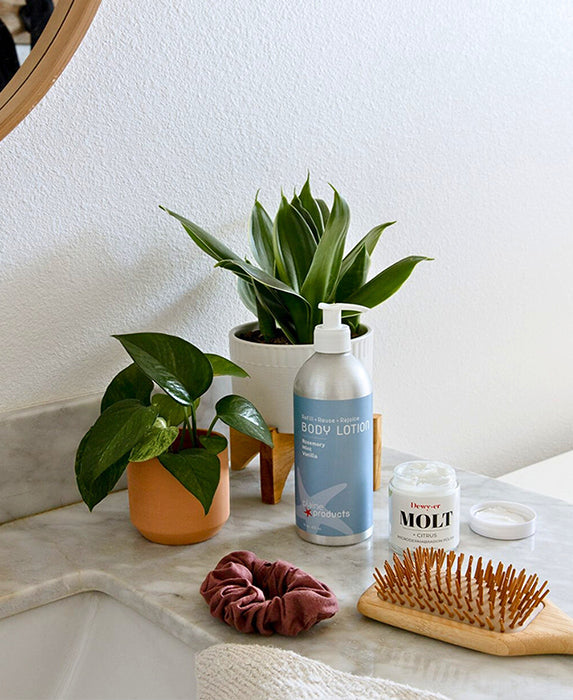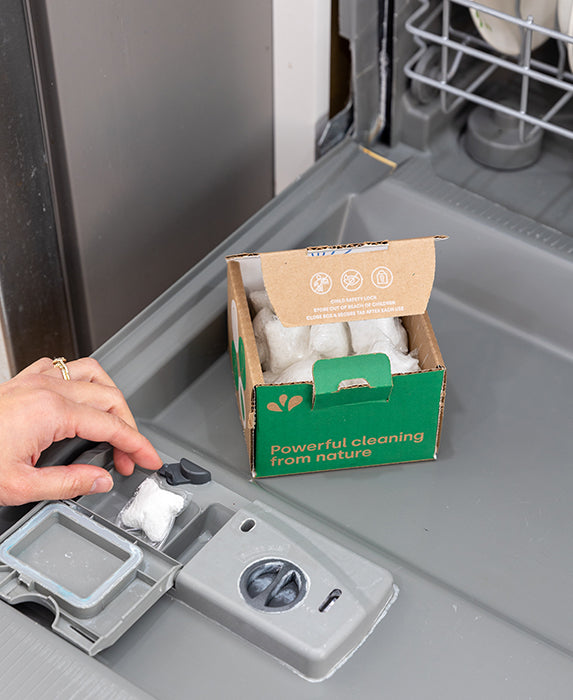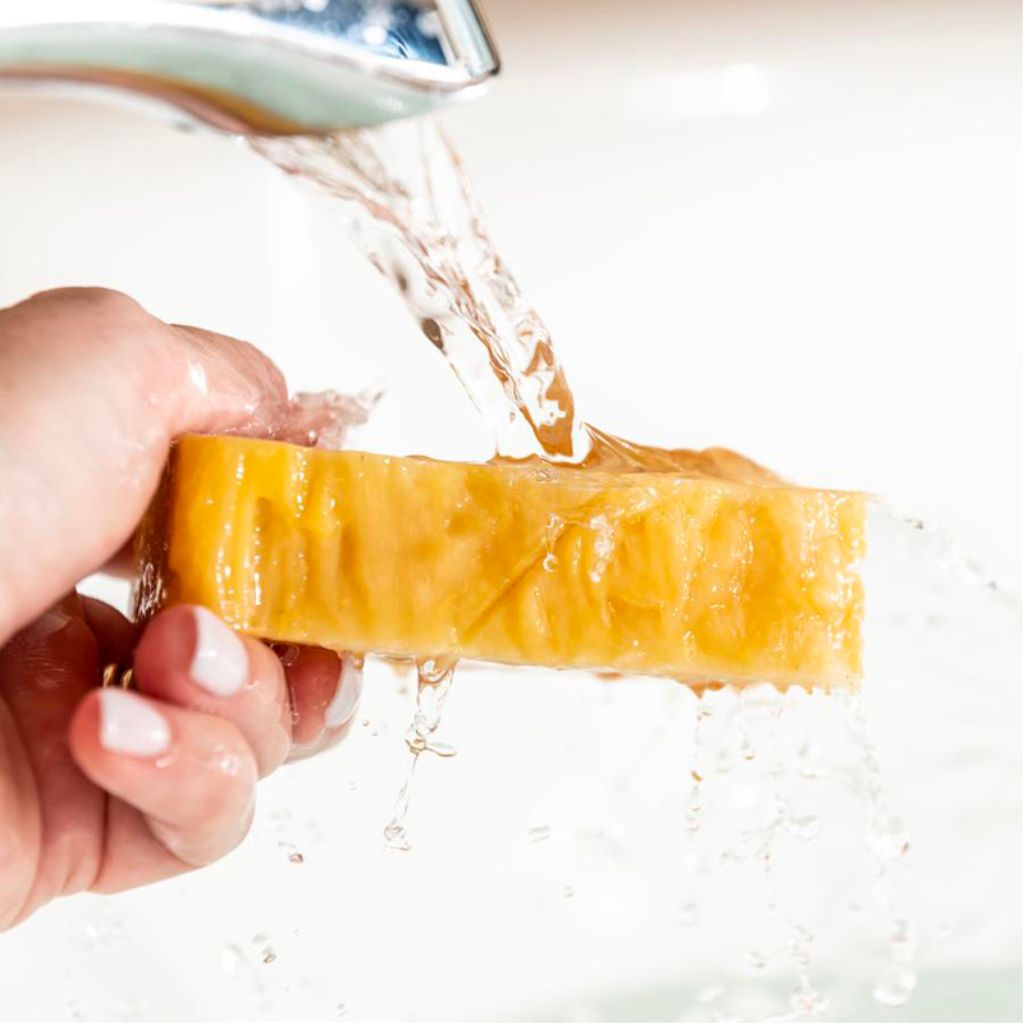We all know being an informed consumer means lots of reading, research, and a whole lotta’ time. From lack-of-transparency, to lack-of-information, some companies like to make it almost impossible to tell if their products are truly sustainable.
But hold up–don’t get out your deerstalker, tweed jacket, and magnifying glass just yet, Sherlock. Here at EarthHero, we do all of the sleuthing for you. For every brand and product on our site, we run them through a rigorous five step evaluation to make sure you have the highest-quality, eco-friendly options to choose from.
Read on to learn how EarthHero’s methodology makes sustainable shopping elementary, my dear Watson.
What you’ll learn:
- What sustainability values we look at when sourcing our brands & products
- How to detect greenwashing, and shop smarter in today’s marketplace
- Gain a greater understanding of the complexities that make a product “sustainable”
The EarthHero Methodology
It’s the number one question that we receive here at EarthHero. As more and more people make the switch to shopping sustainably, there’s one question that needs to be answered: what makes a product, sustainable?
What types of materials can be touted as eco, and why?
Which ingredients are best for your body and the planet?
Does it help you live a more sustainable lifestyle?
What kind of packaging is better than others?
The list goes on and on.
With all of this confusion around sustainability, it’s harder than ever to avoid greenwashing. Brands are popping up left and right promising “green”, “natural”, and “eco-friendly”–but have little to no information to back them up. We think: if they were truly sustainable, wouldn’t they want to tell us about all the amazing things they’re doing for the planet?
That’s why we do business differently, thoroughly vetting each brand in the growing EarthHero family using our 5 stage selection process. We then highlight everything that we’ve learned with you, our community. In the spirit of growing the movement towards more sustainable production, we’re sharing that methodology with you, right here, right now. Because voting with your dollar should be as simple as, well, shopping.

1. Materials & Ingredients

One of the first things we look at before we source any product is: what is it made of? We begin our search by looking for products made from the most sustainable, or “best-in-class” materials or ingredients in each particular product category. For example, the materials that we seek for our clothing is going to be very different than home supplies or shampoo!
In many cases, this means avoiding certain materials and ingredients as well. Think: virgin synthetic polyester, nylon, or other man-made materials that use toxins, pesticides, and petroleum to produce.
For clothing and other fabrics, we look for natural materials made from fast growing plants like hemp, or repurposed materials like recycled polyester. For traditionally chemical heavy textile crops (we’re talking about you, cotton!) we opt for organic varieties. We’ve learned that some materials are great in one form but not in others (Interested? Read our blog about why bamboo isn’t always a go-to eco material).

For many of our backpacks and sporting equipment, we turn to recycled or upcycled materials, because we firmly believe you aren’t truly recycling unless you’re also buying products made from recycled content (closing the loop!).
When it comes to beauty products, we seek out products that use local, vegan, and organic ingredients, and that avoid chemicals and microbeads.
We also look for materials and ingredients that are what they say they are. If a brand claims to make organic skin care, is it USDA Certified Organic, or does it meet the NSF/ANSI 305 Guidelines for products made with organic ingredients? Are the wooden frames on those sunglasses made from sustainably harvested, FSC Certified wood? Third party certifications are our best friend–and we’re always on the search for products that can be certified organic, cruelty free, BPA free, and more.
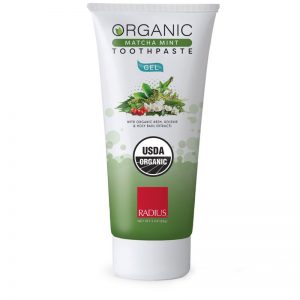
It’s important to us that the materials and ingredients that our brands use preserve the planet for future generations. Raw, non-renewable resources are increasingly scarce, and the processing and refinement it takes to make them into most conventional products can be seriously toxic. But, lucky for us (and you!) there’s no shortage of brands who are making products using better, safer materials.
By making this the first step of our 5 stage methodology, we can promise you that the products you buy on EarthHero are made from better ‘stuff.’ Because we know that when you buy good stuff, more of the good stuff–and less of the bad–gets made. It’s simple economics!
And, just to make sure you’re getting the most out of your Earthhero experience, we provide resources so that you can see for yourself why the materials are absolutely awesome! Did you know bamboo is naturally water-resistant, anti-microbial, pest-resistant, stronger than steel, and the fastest growing plant on the planet? This makes it great for almost anything. We’re loving it as a replacement for single-use plastic utensils! Curious about why a certain material made the cut? Simply check the Sustainability Logos or Sustainability Features located on each product page, read the EarthHero Blog, or reach out to us!

2. Company Responsibility
Looking at materials is just the first step. In addition to the foundation of each product, we want to look at the foundation of each company. What are their company values? How do they show responsibility in the production of their products, the treatment of their workers, and corners that they refuse to cut?

Conventional manufacturing and production can be extremely bad for the planet, using immense amounts of energy, water, and resources–while creating a ton of waste, pollution, and emissions. We look for brands that are shaking it up. From the use of renewable energy like solar and wind power in their factories, to using water and energy efficient printing practices, to utilizing low-impact inks, we look for brands that take steps to make their manufacturing more sustainable.
Osom Brand, for example, has created an ‘awesome’ waterless, dye-free, and chemical-free manufacturing system. By using recycled fabric, they don’t turn to water to grow new materials, and they’re able to create fun patterns and colors without harming the ecosystems and waterways around them.
While we love supporting local and American-made brands, we also support companies that make their products responsibly abroad. We look for fair wages and labor conditions, direct and transparent deals, and Fair Trade Certifications, if applicable. Some of our brands are so local they drop their products off at our doorstep (looking at you, Khala Cloths!), while some are responsibly sourced and manufactured in China (what’s up, Bambu)!
We believe that location of production does not, on its own, determine the sustainability of the product (it makes sense to produce bamboo products in countries where bamboo grows as a native plant, right?), and try to weigh all of the benefits of each product and company together when making decisions about what to sell on EarthHero. At the end of the day, the decision is yours–we label all of our American made products with “Made in the USA!” so you can easily find products that match your values!

Sound a little confusing? Well, one great way that we determine if companies meet the mark is by looking for certified B Corp companies. Based off of the idea that government and nonprofits alone cannot change the world, Certified B Corporations are businesses that focus on the triple bottom line, people, planet, and profit. Through the certification process, they are legally required to consider the impact of their decisions on their workers, customers, suppliers, community, and the environment. Each Certified B Corp is tested to meet stringent standards for social and environmental responsibility, transparency, and accountability.
3. Give-Back
In addition to searching for brands that put their values first, we find brands that build responsibility into their brand in another way–through give back programs. EarthHero celebrates brands that make giving resources, time, and service to various environmental or social organizations a part of their everyday duties. From removing plastic pollution from the ocean, to planting trees for every purchase, many of our brands are actively involved in protecting our planet for future generations.
For example, tentree plants ten trackable trees for every item sold, while Bureo founded Net Positiva, a recycling program that collects and recycles used commercial fishing nets in small coastal towns in Chile–did you know fishing nets make up more than 10% of plastic pollution?
Another great way that we pick out purpose driven companies is by looking for certified 1% for the Planet members. As a part of 1% for the Planet, businesses commit to giving 1% of their annual sales to environmental nonprofits. This allows brands to form great connections with organizations that are making changes that they’re passionate about.

But, the giving doesn’t stop with our brands! Every single purchase on EarthHero gives back even more. We’re proud to donate 1% of our sales towards supporting environmental non-profits through our own partnership with 1% for the Planet. In addition, we offset all our shipping emissions with Carbonfund.org, so your purchase can reach your door in a way you can feel great about! So, no matter what you shop on EarthHero, you support a brighter future with every purchase.
4. Packaging
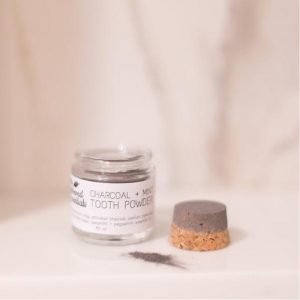
Now… we’re guessing you don’t want tons of foam packing peanuts (why would anyone?) in a box headed to your house. Packaging is so often overlooked by other companies, which is exactly why we made it one of our key focus points.
We start by looking for products that have zero waste, plastic-free packaging whenever possible. From the hangtags on your new shirt to the bottle containing your vegan, organic shampoo, we want to know–is it packaged in glass, aluminum, or another easily recyclable material? Does the packaging contain recycled content? Does it have compostable or biodegradable packaging, or no packaging at all? Does it use bio-based plastic, or recyclable plastic? Can the packaging be reused, refilled, repurposed, or otherwise reinvented?

Sometimes, we find awesome products, usually personal care products, that are packaged in hard-to-recycle plastics. Although that’s something we hope to change, today’s infrastructure makes it difficult for manufacturers to break free of plastic completely. That’s why we’re closing the loop by offering a take-back program through TerraCycle for any plastic personal care products sold on EarthHero. Just ship it to us, and we’ll work with TerraCycle to make sure it’s recycled properly!
5. Sustainable Lifestyle

Our last key focus for product choices is simple–does it help you live a more sustainable lifestyle? Does it help you cut down your use of single use plastic? Does it encourage you to commute via bike?
A great example of this is Love Bottle: the glass bottle is made with recycled glass and ships in zero waste packaging, but it also helps you reduce the use of plastic water bottles, encouraging a sustainable lifestyle for years to come. From reusable food wraps to stainless steel straws, we’re finding ways to break the single-use cycle. In this way, EarthHero is truly a lifestyle, as our products encourage a better way of living. So, go ahead, shop–and live–better. We’re here for you!
The Breakdown
Real talk–now that we’ve shared our methodology with you, it’s important to go over one final thing: there is no perfect product. We search to find brands that check as many of our boxes as possible, and hope to provide our customers with “best in class” products that are made in ways that are significantly better than the average. We can assure you that for every product on our site, we’ve put in the time and effort to make sure it’s a sustainable option, pioneering the movement towards even better methods and materials.
However, we know that some of you may have a specific value set that makes some of our products more appealing than others. That’s why we offer the option to sort by values, like recycled content, cruelty free, organic, made in the USA, and more.
We also provide sustainability logos to help you identify and understand the eco-features of each item. Found on every product page, these logos make it super easy to see why each product made the cut. From BPI Certified Compostable, to Vegan, to 100% Organic Content, you need only look at the logos to shop with your values.
 |
Have questions about our methodology? We’d love to answer your questions–just comment below!

